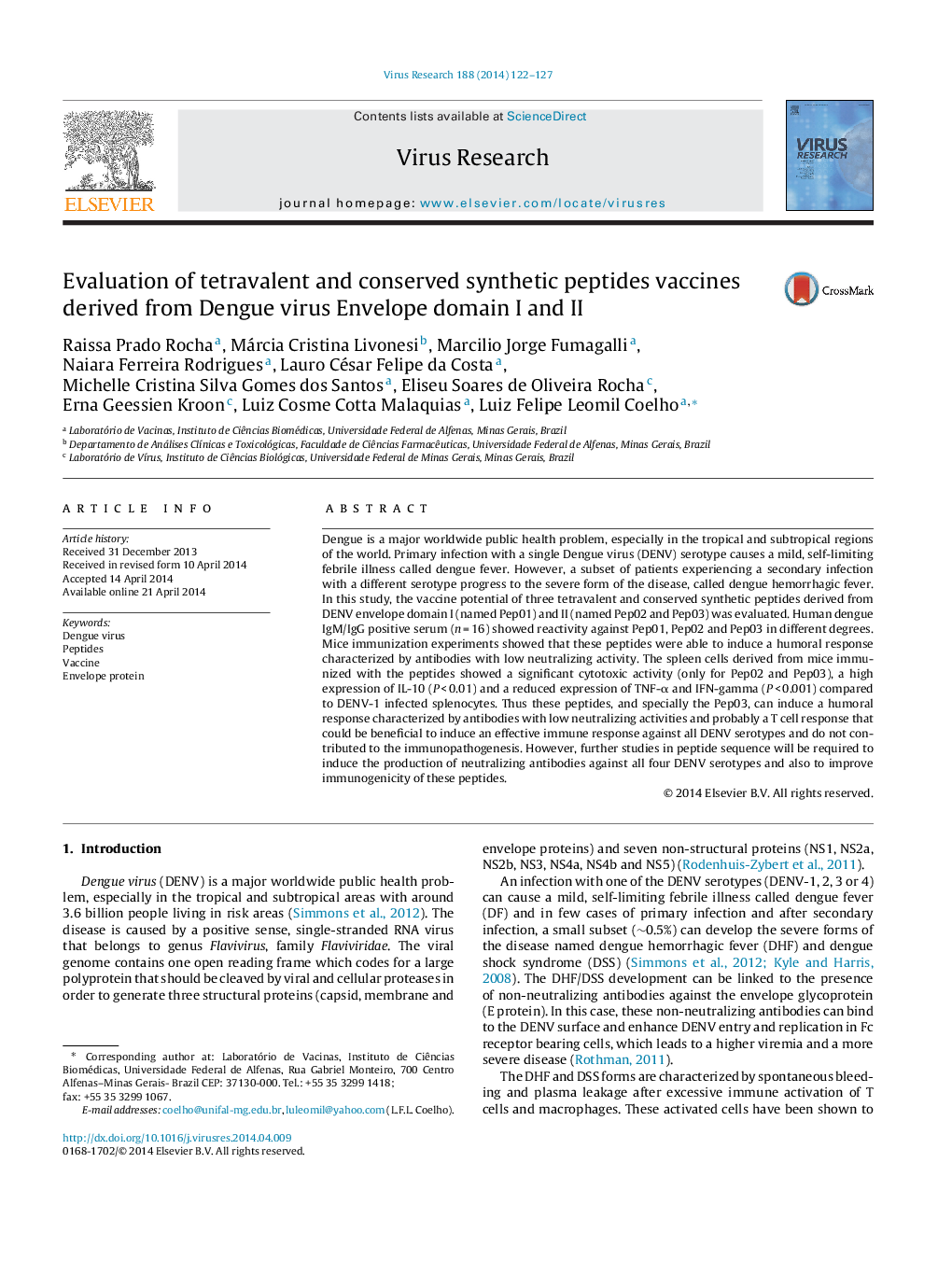| Article ID | Journal | Published Year | Pages | File Type |
|---|---|---|---|---|
| 3428433 | Virus Research | 2014 | 6 Pages |
•Three conserved peptides derived from DENV envelope domain I and II were synthetized.•The peptides were recognized by dengue IgM/IgG positive samples.•The peptides induced antibodies with low neutralizing activity in mice.•Spleen cells from immunized mice had low expression of TNF-α/IFN-γ after infection.
Dengue is a major worldwide public health problem, especially in the tropical and subtropical regions of the world. Primary infection with a single Dengue virus (DENV) serotype causes a mild, self-limiting febrile illness called dengue fever. However, a subset of patients experiencing a secondary infection with a different serotype progress to the severe form of the disease, called dengue hemorrhagic fever. In this study, the vaccine potential of three tetravalent and conserved synthetic peptides derived from DENV envelope domain I (named Pep01) and II (named Pep02 and Pep03) was evaluated. Human dengue IgM/IgG positive serum (n = 16) showed reactivity against Pep01, Pep02 and Pep03 in different degrees. Mice immunization experiments showed that these peptides were able to induce a humoral response characterized by antibodies with low neutralizing activity. The spleen cells derived from mice immunized with the peptides showed a significant cytotoxic activity (only for Pep02 and Pep03), a high expression of IL-10 (P < 0.01) and a reduced expression of TNF-α and IFN-gamma (P < 0.001) compared to DENV-1 infected splenocytes. Thus these peptides, and specially the Pep03, can induce a humoral response characterized by antibodies with low neutralizing activities and probably a T cell response that could be beneficial to induce an effective immune response against all DENV serotypes and do not contributed to the immunopathogenesis. However, further studies in peptide sequence will be required to induce the production of neutralizing antibodies against all four DENV serotypes and also to improve immunogenicity of these peptides.
